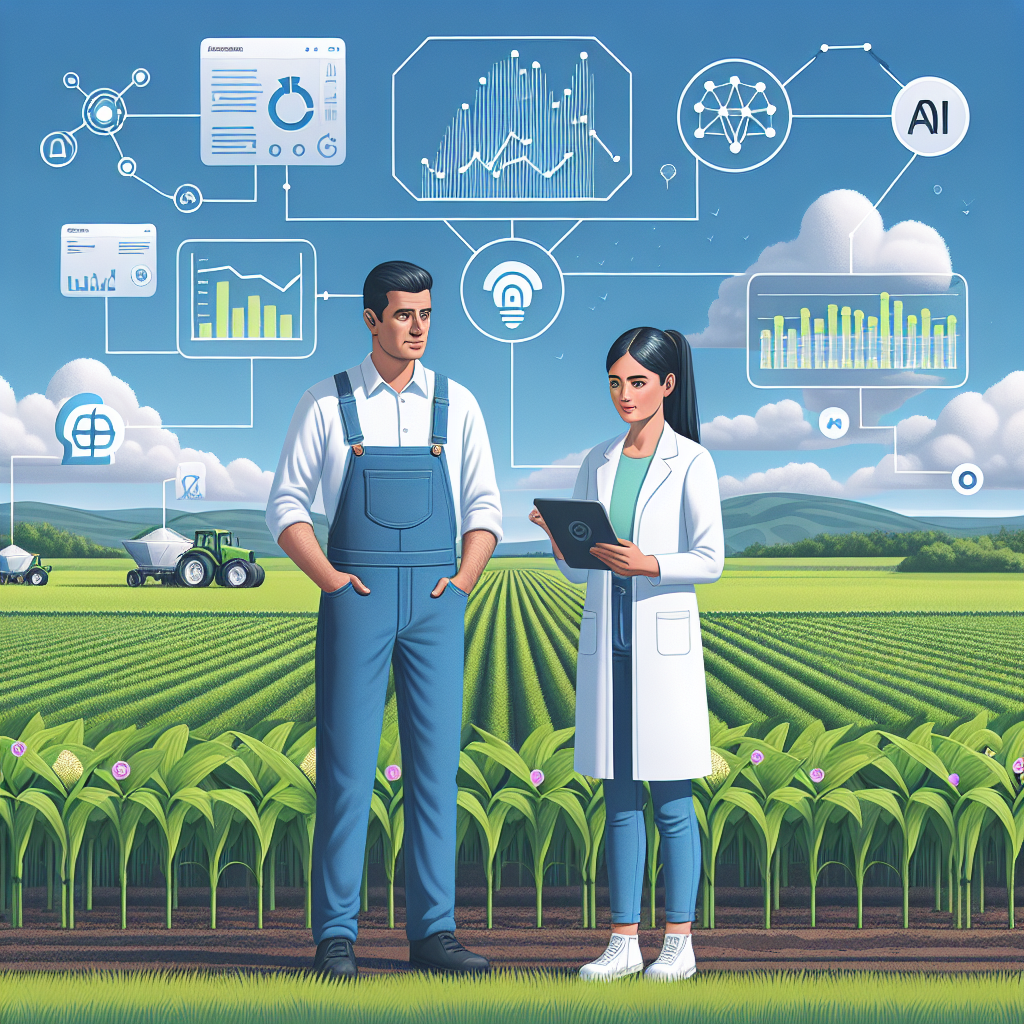The Role of AI in Enhancing Farmer Decision-Making
Artificial Intelligence (AI) is revolutionizing many industries, and agriculture is no exception. With the help of AI technologies, farmers can make more informed decisions and optimize their operations for increased productivity and efficiency. From predicting crop yields to monitoring soil health, AI is transforming the way farmers manage their farms. In this article, we will explore the role of AI in enhancing farmer decision-making and how it is reshaping the future of agriculture.
AI in Agriculture
AI refers to the simulation of human intelligence processes by machines, particularly computer systems. In agriculture, AI technologies use algorithms and data to analyze and interpret information to help farmers make better decisions. AI can be used in various aspects of farming, including crop monitoring, weather forecasting, pest control, and machinery management.
One of the key advantages of AI in agriculture is its ability to process large amounts of data quickly and accurately. By analyzing data from various sources such as sensors, drones, satellites, and weather stations, AI can provide farmers with valuable insights into their crops and soil conditions. This information can help farmers optimize their planting schedules, irrigation practices, and crop protection strategies.
AI can also help farmers predict crop yields more accurately. By analyzing historical data and real-time information, AI algorithms can forecast potential yields based on factors such as weather patterns, soil quality, and crop health. This information can help farmers plan their harvests more efficiently and make better use of their resources.
Another area where AI is making a significant impact in agriculture is in pest control. AI-powered systems can analyze data from sensors and cameras to detect pests and diseases in crops at an early stage. This information can help farmers take proactive measures to prevent the spread of pests and minimize crop damage. By identifying the specific types of pests and diseases affecting their crops, farmers can also choose the most effective treatment options, reducing the need for chemical pesticides.
AI can also improve machinery management on farms. By integrating AI technologies into farm machinery, farmers can optimize their operations for increased efficiency and productivity. For example, AI-powered tractors can autonomously navigate fields, adjust planting depths, and monitor crop health in real-time. This can help farmers reduce labor costs, save time, and improve crop yields.
Overall, AI has the potential to revolutionize the way farmers make decisions and manage their operations. By leveraging the power of AI technologies, farmers can gain valuable insights into their crops, soil conditions, and machinery, enabling them to make more informed decisions and optimize their farming practices for increased productivity and profitability.
FAQs:
Q: How can AI help farmers improve crop yields?
A: AI technologies can analyze data from various sources such as sensors, drones, satellites, and weather stations to provide farmers with valuable insights into their crops and soil conditions. By analyzing this data, AI algorithms can help farmers optimize their planting schedules, irrigation practices, and crop protection strategies, ultimately leading to improved crop yields.
Q: Can AI help farmers reduce the use of chemical pesticides?
A: Yes, AI-powered systems can analyze data from sensors and cameras to detect pests and diseases in crops at an early stage. By identifying the specific types of pests and diseases affecting their crops, farmers can choose the most effective treatment options, reducing the need for chemical pesticides.
Q: How can AI improve machinery management on farms?
A: By integrating AI technologies into farm machinery, farmers can optimize their operations for increased efficiency and productivity. For example, AI-powered tractors can autonomously navigate fields, adjust planting depths, and monitor crop health in real-time. This can help farmers reduce labor costs, save time, and improve crop yields.
Q: Is AI expensive for farmers to implement on their farms?
A: While implementing AI technologies on farms may require an initial investment, the long-term benefits can outweigh the costs. By improving decision-making, optimizing operations, and increasing productivity, AI can help farmers save time and resources, ultimately leading to increased profitability.
Q: What are some of the challenges of implementing AI in agriculture?
A: Some of the challenges of implementing AI in agriculture include the need for reliable data sources, access to AI expertise, and concerns about data privacy and security. However, as AI technologies continue to advance and become more accessible, these challenges are becoming easier to overcome.
In conclusion, AI is playing a significant role in enhancing farmer decision-making and transforming the future of agriculture. By leveraging the power of AI technologies, farmers can gain valuable insights into their crops, soil conditions, and machinery, enabling them to make more informed decisions and optimize their farming practices for increased productivity and profitability. As AI continues to evolve, the possibilities for its applications in agriculture are endless, promising a more sustainable and efficient future for farmers around the world.

